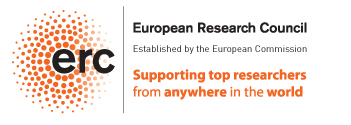My main research topics are
- social media use in professional settings
- informal learning with social media
- (para)social processes
- algorithm acceptance
- human-machine communication
Prior in my career, I also worked on
- social identification and interpersonal attraction in virtual communities
- effects of priming on behavior in social dilemmas
- strategic information sharing
- electronic word-of-mouth
- crisis communication on social media
- media use in interpersonal relationships
Social media use in professional settings
Professional social networking sites (PSNS) such as LinkedIn or Xing promise their users to make them more successful by giving them access to people and information. Within the ERC-project ReDefTie (Redefining tie strength: How social media (can) help us to get non-redundant information and emotional benefits), we found that LinkedIn users report higher professional informational benefits (operationalized as (timely) access to information and referrals; Burt, 1992). My work concentrates on the processes explaining this effect. On the cognitive side, we examine how people develop ambient awareness, i.e., knowledge about who knows what in their network by regularly skimming social media updates. We did so mainly with experiments and surveys, but from September 2019, we also used machine learning methods to see how good expertise can be extracted from actual tweets (project as part of the DFG-excellence cluster machine learning for sciences). We also look at the role of networks and how networking influences social media use and retrieving informational benefits (WissenschaftsCampus project “Overcoming cognitive and motivational barriers for networking: contact recommendation systems in professional settings”). Within the DFG project “Benefits of professional social media use”, we conducted a measurement burst field study to explore the various temporal dynamics.
| ReDefTie – redefining tie strength: How social media (can) help us to get non-redundant useful information and emotional support. |  |
Selected publications
Anderl, C., Levordashka, A., & Utz, S. (in press). Ambient awareness of who knows what: Spontaneous inferences of domain expertise. Media Psychology. DOI:10.1080/15213269.2023.2239144
Levordashka & Utz (2017). Spontaneous trait inferences on social media. Social Psychological and Personality Science, 8(1), 93-101. DOI: 10.1177/1948550616663803
Levordashka, A. & Utz, S. (2016). Ambient awareness: From random noise to digital closeness in online social networks. Computers in Human Behavior, 60, 147-154. DOI: 10.1016/j.chb.2016.02.037
Muscanell, N.E. & Utz, S. (2017). Social networking for scientists: An analysis on how and why academics use ResearchGate. Online Information Review, 41(5),744-759. DOI:10.1108/OIR-07-2016-0185
Utz, S. (2016). Is LinkedIn making you more successful? The informational benefits derived from public social media. New Media & Society, 18(11), 2685-2702. DOI: 10.1177/1461444815604143
Utz, S., & Breuer, J. (2016). Informational benefits from social media use for professional purposes: Results from a longitudinal study. Cyberpsychology: Journal of Psychosocial Research on Cyberspace, 10(4), article 3. DOI:10.5817/CP2016-4-3
Utz, S. & Breuer, J. (2019). The relationship between networking, Linkedin use and retrieving informational benefits. Cyberpsychology, Behavior, and Social Networking, 22, 180-185. DOI:10.1089/cyber.2018.0294
Informal learning with social media
More and more people use social media for informal learning, e.g. “How-to” videos on YouTube. We are interested in the characteristics of the protagonist in these videos.
Selected publications
Utz, S. & Wolfers, L. (in press). How-to videos on YouTube: the role of the instructor. Information, Communication & Society. DOI:10.1080/1369118X.2020.1804984
Parasocial processes
Parasocial processes refer to asymmetric interactions or relationships with media figures. We examined, for example, how athletes and teams use social media to strengthen the bond with fans and how this can act as a buffer in times of crisis. Parasocial processes can also play a role in learning – think of the parasocial interaction with a YouTube influencer or the parasocial bond regular listeners of the podcast by virologists build with the expert. People can even form a parasocial bond with virtual agents such as chatbots or voice assistants.
Selected publications
Gaiser, F. & Utz, S. (2022). “My daily dose of sedation” – The secret to success of the science communication podcast coronavirus-update with the virologist Christian Drosten and its effect on listeners. Studies in Communication and Media, 11(3), 427-452. DOI:10.5771/2192-4007-2022-3-427
Utz, S., Otto, F., & Pawlowski, T. (2021). Germany crashes out of World Cup”. A mixed-method study on the effects of crisis communication on Facebook. Journal of Sport Management, 35(1), 44-54. DOI:10.1123/jsm.2019-0430.
Utz, S., Gaiser, F., Wolfers, L.N. (2022). Guidance in the chaos: Effects of science communication by virologists during the COVID-19 crisis in Germany and the role of parasocial phenomena. Public Understanding of Science, 31(6), 799-817. DOI:10.1177/09636625221093194
Algorithm acceptance
Algorithmic decision-making plays a role in more and more areas of life, ranging from recommendations and filtering algorithms to consequential decision-making. We explore which individual and situational factors influence whether people accept algorithmic decision-making or various variations of human-machine teaming. Another question addressed by a DFG project is how egocentric human biases influence the judgments of biased algorithms.
We are also interested in algorithm literacy.
Selected publications
Utz, S. (2024). How gender and type of algorithmic group discrimination influence ratings of algorithmic decision-making. International Journal of Communication, 18, 570-589.
Utz, S., Wolfers, L. N., & Göritz, A. S. (2021). The effects of situational and individual factors on algorithm acceptance in COVID-19 related decision-making: a preregistered online experiment. Human-Machine Communication, 3, 27-45. DOI:10.30658/hmc.3.2
Human-machine communication
AI-based voice assistants have spread rapidly and are playing an increasingly important role in users’ everyday lives. Owners can access a wide range of applications via voice. The assistants are also used for information search and thus provide an alternative to conventional screen-based search engines. Within a digilog@bw project, we focus on the question of how voice assistants affect the search for and the evaluation of information. We are currently extending this work to ChatGPT and other large language models. Another project examines the role of responsiveness in human-chatbot interactions.
For more information on first results, see here
Selected publication(s)
Gaiser, F., & Utz, S. (in press). Is hearing really believing? The importance of modality for perceived message credibility during information search with smart speakers. Journal of Media Psychology. DOI:10.1027/1864-1105/a000384